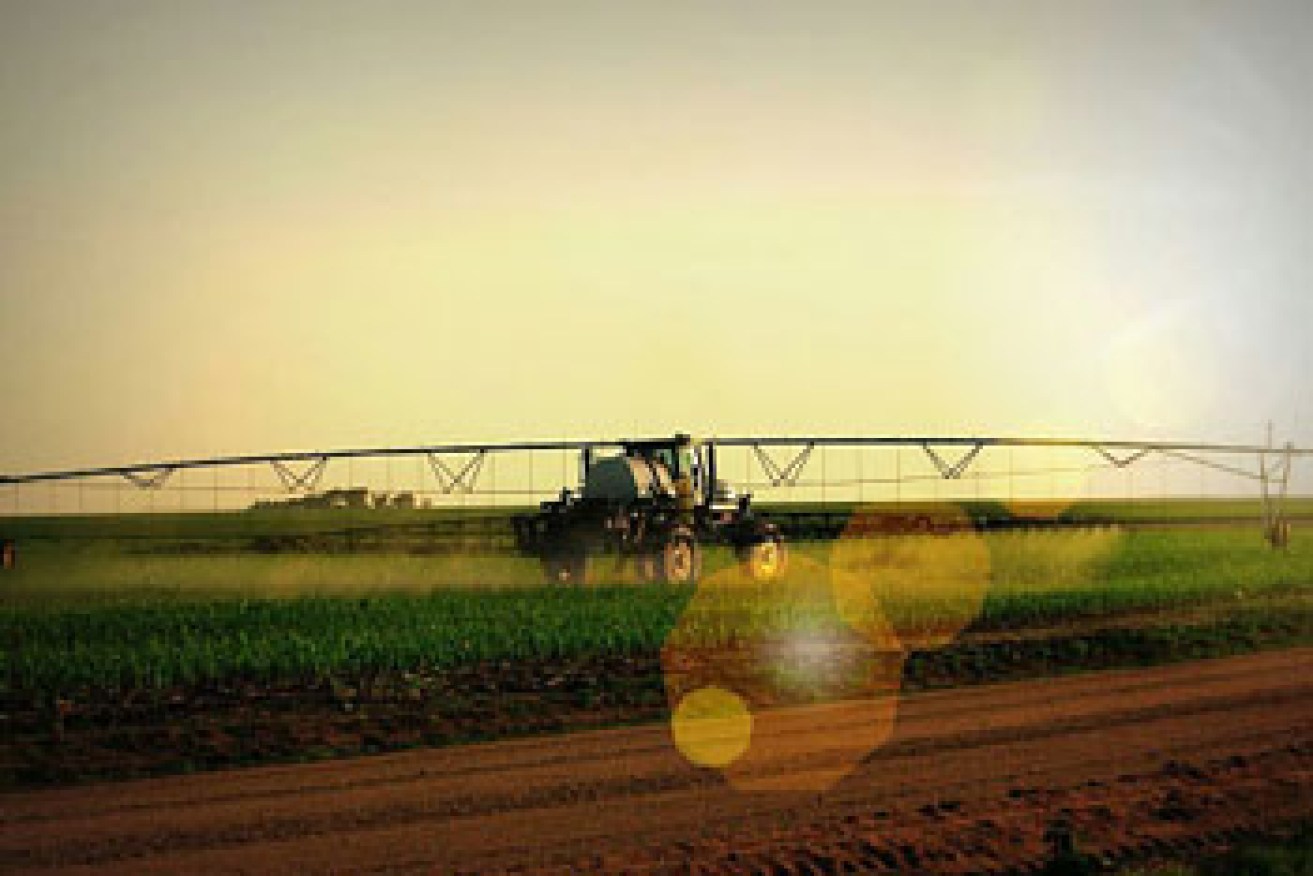Unsafe herbicide still used in Aussie playgrounds

Getty
Councils across Australia are using the weed killer glyphosate in sensitive areas like playgrounds, despite a World Health Organisation (WHO) warning the chemical probably causes cancer.
Glyphosate was originally trade marked as “Roundup” and is commonly used by households, farms and local councils.
Last year, the WHO’s International Agency for Research on Cancer (IARC) upgraded its assessment of the common herbicide from “possibly” to “probably carcinogenic to humans”, placing it in the same category as red meat.
• Malcolm Turnbull drops ‘unjustified’ GST increase
• Thousands claim NSW govt laws are ‘anti-cycling’
• Chemical risk shuts CFA site
The IARC found limited evidence of carcinogenicity in humans for non-Hodgkin lymphoma, mostly in agricultural workers.
The Australian Pesticide and Veterinary Medicine Authority (APVMA) and the Federal Department of Health are now re-assessing the risks it presents to humans.
APVMA told the ABC it expected that investigation to be finalised in May or June.

Glyphosate was originally trademarked as ‘Roundup’ and used by farmers, households and councils to kill weeds. Photo: ABC
In a statement it said: “It is important to note that the hazard assessment conducted by IARC was not a complete regulatory risk assessment.”
“The APVMA, along with regulators in other countries, consider that current labels for glyphosate products contain appropriate instructions for use to keep those regularly handling glyphosate safe.”
The authority said about 50 per cent of its $33 million budget came from levies that companies paid to have their product registered in Australia, determined by the quantity of sales.
Glyphosate products contribute $1.5 million.
APVMA said there was no conflict of interest in investigating a product that contributed to its budget.
“The existence of levies and or application fees paid by companies are not relevant or taken into consideration when the APVMA looks at the scientific basis of any review activity,” it said.
The industry body for agricultural chemicals, CropLife Australia, said it had not, and would not be making contact with the regulator regarding its re-assessment of glyphosate.
But chief executive Matthew Cossey said CropLife’s members had regular contact with the APVMA.
“Of course they have to go through full assessment periods with them. The process of bringing a new product to market takes years,” Mr Cossey said.
“From an industry perspective, would we like government to fund the regulator? Absolutely.”
Mr Cossey reiterated that the industry believed glyphosate was completely safe, and said the vast body of research supported that.
Countries including the Netherlands, Sri Lanka, and El Salvador have started banning glyphosate.
Locals push for glyphosate ban

Councils continue to spray the weed killer in sensitive areas, including playgrounds. Photo: Getty
Residents in Castlemaine and Bendigo in Central Victoria have petitioned their local councils to stop using glyphosate-based pesticides.
“I have two kids, four and seven and I don’t want them to have Roundup or any kind of glyphosate sprayed around their school, and I know it is,” Bendigo resident Jacky Vincent said.
Until Australian authorities change their assessment, local councils can continue to use the weed killer around schools, parks, and playgrounds and are not obliged to tell the public when and where they are spraying.
Work Safe Victoria issued a statement to the ABC saying it was preparing new advice for councils about using glyphosate.
“WorkSafe believes it is appropriate to alert Victorian employers to the issue. It will shortly issue guidance material advising employers of its reclassification,” the WorkSafe statement said.
Councils urged to consider other weed killing options
New South Wales insurance body State Cover warned local councils to investigate other options to control weeds.
“It is recommended that councils take a cautious approach and investigate their use of glyphosate and other hazardous chemicals used for weed control,” State Cover told local NSW councils in a fact sheet.
Public safety lawyer Dimi Ioannou from Maurice Blackburn said council workers could potentially sue their employers in the future if they developed a significant injury as a result of handling the product.
“In the past we have ignored signs where products have been a dangerous good, such as asbestos, and years later thousands of victims have potentially made a claim for their pain and suffering,” Ms Ioannou said.

Glyphosate, formerly Roundup, is used on an industrial scale. Photo: Getty
Yarra City Council in Melbourne is one of several councils around the country to trial alternative methods of killing weeds.
Councillor Roberto Colanzi said using steam has proved to be more effective than herbicides.
“Per unit cost it’s probably more expensive but we tend to undertake the steam cleaning every six weeks rather than every four so that’s an economic benefit, it seems to reduce the weed regrowth so that’s an economic benefit,” Cr Colanzi said.
Tim Farrell is the CEO of Weedsteamers, a company local councils contract to steam weeds.
Mr Farrell said there were about 30 local councils around the country, out of 560 councils in total, who were trialling or regularly using weed steaming in some areas.
He admitted it was a slightly more expensive method than pesticide.
“About the same as a cup of coffee and a cake. Per head, per annum. I think we can probably stretch to that as a community. And as a society, I don’t think we have a choice to ignore it any longer,” Mr Farrell said.
On February 9, Mount Alexander Shire Council rejected a petition from Castlemaine residents calling for an end to glyphosate use.
In a statement the council said: “Steam was trialled for weed control in 2014 but was not considered to be economically viable.”
The council said it had trialled a “plant-derived weed control product” last year but it was more expensive and less effective than glyphosate.
– ABC









